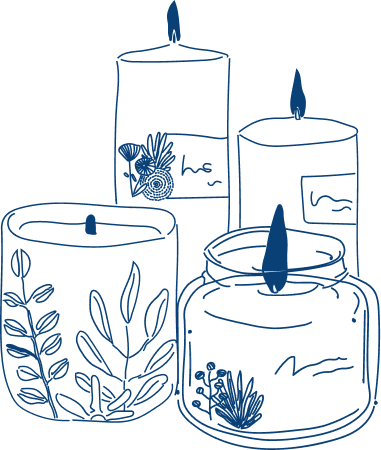The Delights of Distraction No.57
Table of contents
Last week, we took a spontaneous break from the DOD newsletters, for no particular reason other than the fact that it’s been mighty hard to concentrate for long periods without our minds flitting into what Brene Brown called “dress rehearsal tragedy” - playing out scenes of impending disaster when you’re in the middle of an activity as dangerous as lounging on a LazyBoy, eating Kakaji wafers while watching Sherni.
Have you ever had those days, where something doesn't seem right and you can't quite put your finger on it? It could be a mix of moving house (Avneet has shifted flats to a space with shockingly gothic sconces and an impractically giant bathtub), sleeping fitfully, or the soft-opening of the city which is throwing off our routines. But overall, we’re having difficulty getting our engines started. We're in a post-Covid limbo, a Schroedinger's Catbox where the pandemic is simultaneously dead and alive. As we brace for the third wave to hit, we believe we’re in a “liminal” space, describing the in-between period in a rite of passage and the sense of disorientation that comes from being now what you once were and also not what you will yet be.
Liminal spaces are explored further in our joy scroll section, but to describe this ineffable emotion, we turn to the epic online project by John Koenig to poetically define emotions that we all feel but don’t have the words to express.
In this liminal space, we’re torn between these two words:
Kenopsia
n. the eerie, forlorn atmosphere of a place that’s usually bustling with people but is now abandoned and quiet—a school hallway in the evening, an unlit office on a weekend, vacant fairgrounds—an emotional afterimage that makes it seem not just empty but hyper-empty, with a total population in the negative, who are so conspicuously absent they glow like neon signs.
Anemoia - n. nostalgia for a time you’ve never known
Imagine stepping through the frame into a sepia-tinted haze, where you could sit on the side of the road and watch the locals passing by. Who lived and died before any of us arrived here, who sleep in some of the same houses we do, who look up at the same moon, who breathe the same air, feel the same blood in their veins—and live in a completely different world.
The past is a foreign country, and we’re only tourists. Being caught in this liminal space means you feel like a tourist, even in the present time.
And here’s our picks of from the internet this week:
To joy scroll: “The liminal space is the 'crossing over' space, a space where you have left something behind, yet you are not yet fully in something else. It's a transition space.” These images hold something strangely powerful to the human psyche about transitionary places. The feeling of being between two places is an uncanny feeling, whether it's literal or psychological. This page catalogues a series of liminal spaces that are weirdly comforting, from labyrinthine hallways in buildings, to vacant truck stops, and other seemingly abandoned architecture.
And here’s a video that explains this concept deeper.
To read: An essay on how the pandemic taught the author to look closely at the world, and how they hope to carry that forward out the other side, This mediative action can be practised once you realise that attention is a muscle. Looking closely is the application of that muscle, and we are much richer for it. “Life, the universe, everything — that tiny basket of stuff. Looking closely as the key to being more empathetic and sympathetic, of nurturing compassion for the self (therapy — a close looking at the mind via the help of an expensive third party) or The Other, of scientific or mathematical rigour, of artistic depth, of literary or critical mastery, of great leadership, of elevated partnership (domestic, business, spiritual, tennis). All of these eminent states are predicated on the skill of close-looking, of having enough control of your attention to focus the mind on a single point and see that point — really see it — for what it is turning it over again and again.”
In an era marked by solitude and loneliness, we were pleased to come across this illuminating homage to Chekhov, otherwise called the “poet of loneliness”. “No writer understood loneliness better than Chekhov. People long for understanding, and try to confide their feelings, but more often than not, others are too self-absorbed to care.” Chekhov had the ability to express emotions in a soft, poignant way - and is that not the purpose of great literature? To help us recognize, and be conscious of, what we experience but do not really notice?
We loved this David vs Goliath meets patriarchy-smashing ode to the Bengali Shudra widow, Rashomoni, who outwitted the East India Company. Although she was one of the most influential icons of the 19th century, she was relegated to the margins of history. Thankfully she’s made a resurgence in a chart-topping 1,300-episode Bengali biographical series on TV since 2017.
To leisure read: If you’re ever looking to gift books, get down and intense on a particular subject or just explore the best there is to offer - do check out this nifty website, They ask experts to recommend the five best books in their subject and explain their selection in an interview.
This site has an archive of more five thousand book recommendations, across subjects from sexuality to murder mysteries. We loved their cookbook section, where they’ve invited some oof the world's greatest cooks to give their recipe book recommendations, including Yotam Ottolenghi, Mary Berry and Ruth Reichl.
To listen: Concert Roulette is a new way of discovering classical music and might fill the concert-shaped hole in your lives. Simply click to start and you’ll be presented with a video of a concert. Keep spinning by clicking ‘another!’ until you find one you want to watch. There are hundreds of videos from around the world - you’ll find music choices from the renaissance period right up to the present day. You’re just as likely to get a choral concert in a church as an orchestral show on stage or a solo performance in a gallery, all filmed in high definition.
To watch: “In a grove” was a short story published in early 1920s which was later adapted by Akira Kurosawa in 1950, into the movir we now know as Rashomon. It introduced the world to an enduring cultural metaphor that has transformed our understanding of truth, justice and human memory. In this short video, Sheila Marie Orfano explores the phenomenon of warring perspectives known as the Rashomon effect, that undermines the idea of a singular, objective truth.
To cook: With the pandemic raging on with little respite, it’s been a year of at-home bars. We loved this article by Mint Lounge that asked six top bartenders to share recipes, expert advice and music suggestions for pyjama parties of one. These are all deliciously deceptively easy cocktails to rustle up, with ingredients easily available in India, no obscure allusions to only foreign-bought liqueurs. All the bartenders were asked the “Must have spirits” for a decently functional cocktail bar at home, and they almost unanimously declared the following five: Good whiskey, gin, vodka, rum (dark and light) and Tequila.
To ponder: This is one best articles we’ve ever read about what it's like to write a poem and revise it, over and over, until it's devastatingly perfect to the writer. From the NYT, it’s a a beautifully crafted and designed dissection of Elizabeth Bishop's poem, One Art, in multi-media. It’s packed with rich insights into the poem and poetry. What we found most fascinating is seeing the poem in early drafts - how loose and unformed it is; and then how she starts to gather it up and turn and shape it until it becomes the finished object, tight as a drum. Bishop was an American treasure, one of the best poets of the 20th century. Her art reminds us how poetry can shine a light in the darkness.
To heal: For those of you who may find journaling either too tiresome or daunting, there’s a new way to perhaps navigate through relational dilemmas. It’s called “therapeutic writing,” and it’s touted by Esther Perel as foundational to her therapy work. “These letters—to a deceased or estranged parent, sibling, or friend; an influential teacher; an ex; someone who sexually molested them; someone they wish to thank; someone to whom they owe an apology; someone they’ve fantasized about getting revenge on for years; the one that got away—allow for a deeply private space for reflection and, if appropriate for sending, potential communication.”
To WTF: A long Wikipedia list of common misconceptions. You’ll learn, for example, that “Christopher Columbus was not the first European to visit the Americas.” that Napoleon Bonaparte was not short. He was actually slightly taller than the average Frenchman of his time, standing at 5 ft 7 inches. The memory span of Goldfish is much longer than just a few seconds. It is up to a few months long, Thomas Edison did not invent the light bulb or Stretching before or after exercise does not reduce muscle soreness.
To try: If you just want to scream into the void , mark your presence in the universe or put out a message to strangers in the world - you can send a message on this website. Other people will be able to read what you write, but your name or identity won’t be attached to anything, so feel free to say what’s on your mind. You can also read what others have written, from exhortations of joy to sharing their feelings of loneliness and loss.
To life hack: We found this little message on instagram and thought it was a great idea: “My friend and I are both very introverted. We wanted to spend time together, but were going through busy times in our lives and felt socially exhausted. So, we instituted reading days, where we'd sit in companionable silence for a couple hours while we read whatever book was on our list. It was nice not feeling obligated to talk - sometimes you just want to be together.”
To the people
reading this poem, hello.
I want you to know
nothing bad will happen
as long as you’re here.
Every line you see
was written in a cab.
I’m on the FDR
in the middle of winter
and the sky is suddenly bluer
than Sundays in June.
There’s no reason for it.
No real science
to what will happen when
I get off at Chambers
and Broadway, wearing
gold and black sneakers
on my way to meet
a friend who is sad.
To my sad friends, hello.
For you I will be
a version of myself
I hardly remember.
I will be a lake
at the top of morning
some late afternoon into night.
And if you look away from
this page, to your right
there’s the world.
I am only trying to describe it.
—Alex Dimitrov, from “Poem Written in a Cab”
Thank you for reading, and if you’re feeling a little “off” as we were, remember:
You are the result of an incomprehensibly long series of near-impossibilities.
Life is sad and strange, but it’s a gift to be here.
Viv and Ami







Leave a comment